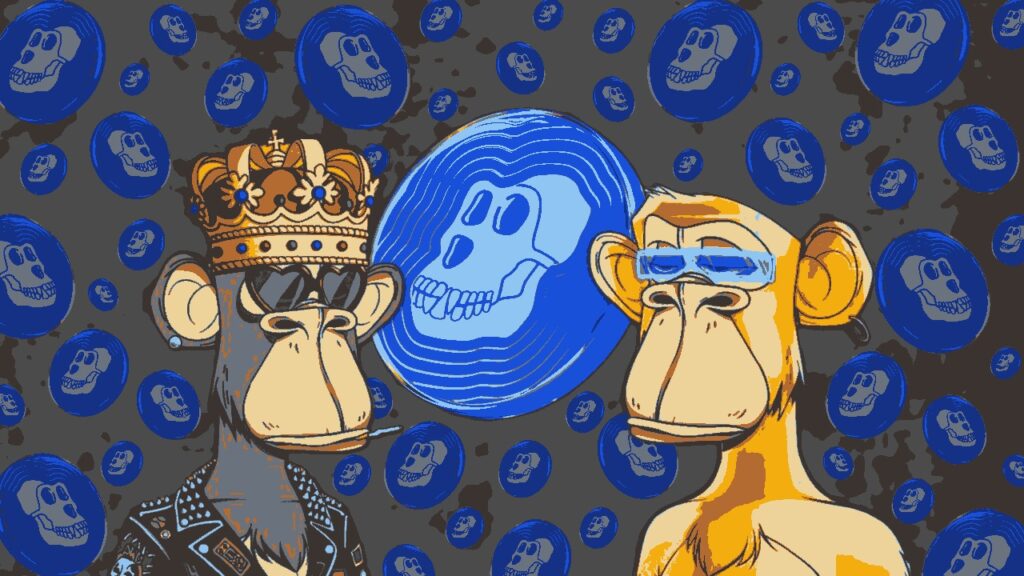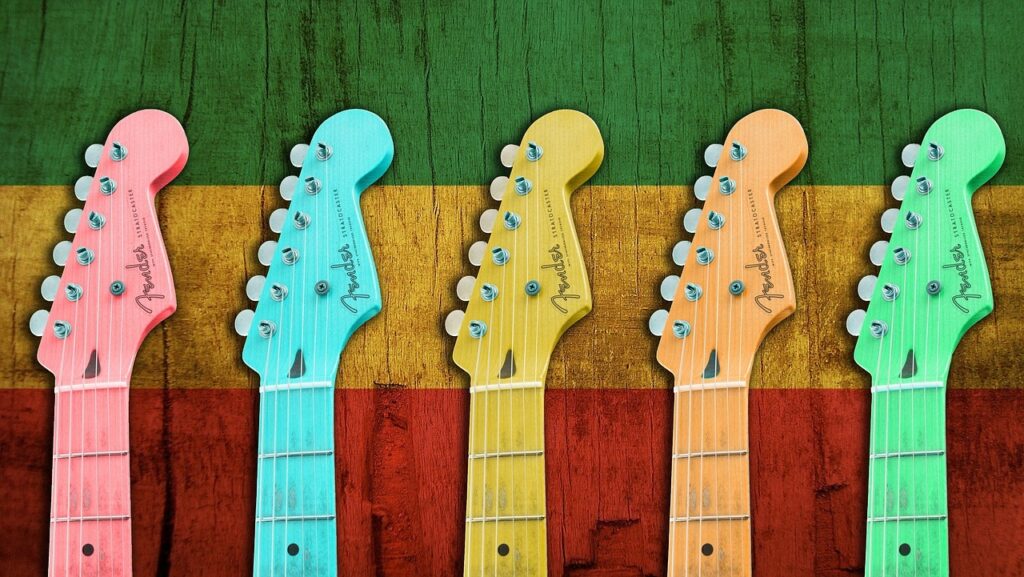Music in the Metaverse Challenge showcases four new startups
Written by WOM writer on September 2, 2022
Music Ally has been covering the intersection of music with games and virtual worlds for a long time now. It’s been exciting to see the partnerships and experiments step up a notch in the past couple of years, with artists and labels alike keen to seek out inventive metaverse startups with music ambitions.
This month, the ASCAP Lab and NYC Media Lab teamed up in the US for a ‘Music in the Metaverse Challenge’ to spotlight some of those fledgling companies. Four startups were chosen to receive grants and a 12-week mentorship program, culminating in a demo day on 10 August.
You can watch the demo day in the video embedded further down this piece. Read on for our profiles and interviews with the four startups.

Popins
Popins is a startup using volumetric video technology to turn artists into 3D avatars, which can then be viewed on mobile devices, and used by fans to create their own clips – for example duets.
“We are most excited about reimagining the artist-fan connection,” says co-founder Christina Calio, citing an activation when Popins set up a photobooth at a fundraising concert in Seattle featuring artists including Dave Matthews, Mike McCready and Duff McKagan.
“Attendees could have a virtual meet’n’greet with musicians in the show, sparing artists time and encouraging safety during the pandemic. People loved it!” she says. “They left with a photo and a closer connection to the artists, that they could also share on their socials.”
Popins has its own volumetric video studio that it has made free for artists to use, in an effort to lower the barriers for musicians to explore what’s possible.
“New technologies always open doors. As a community, we need to find ways for artists to monetise their music by creating new business models and democratising access to the technology,” she says, adding that she thinks web3 and metaverse technologies’ prime role is to help with these goals.
“Savvy artists and their representatives recognise that diving in now, as a first mover, will be a strategic advantage over the long term and come with the potential to reach and develop new and engaged audiences.”
Calio thinks that AR music performances are engaging in themselves for fans – “it always brings a smile to their face” – but hopes that combining them with the new business models emerging with NFTs could create a meaningful new income stream for musicians.
Earlier this month, artist SassyBlack tested that out, releasing 22 NFTs that included a holographic music performance created with Popins, and a meet-up with her in the metaverse. We can expect more of these kinds of partnerships.
Calio says that the sense of a wider community exploring music in the metaverse was a key benefit of the ASCAP Lab and NYC Media Lab challenge.
“The metaverse today is undefined, with peaks, valleys, winding paths, and unknown terrain. To make it an inviting and fun place, we all need to work together to build a thriving ecosystem,” she says.
The challenge also gave Popins the opportunity to think on the hoof, working with a Ukrainian artist called Roman Vashchuk who’d been stuck in America since Russia’s invasion of his home country.
“With Popins Live, Roman was able to teleport as a hologram to his home streets, sing a national song, speak to Ukrainian officials worldwide who commemorated the day, and talk about the current situation with family and friends,” says Calio.
“We learned that Popins Live could create a deeply moving and profound connection with music in a time of crisis.”

SolTunes
SolTunes is one of the emerging group of NFT startups exploring generative music as the core for its tokens. People buying its tokens can mint their own pixel-art bands, generated from characters including humans, androids, zombies, skeletons and aliens.
People will then be able to use the company’s studio software to mix and match musicians and thus create new pieces of music, with plans also afoot for remix competitions.
“The most exciting thing about the intersection of music and the metaverse is that it is a landscape that is not determined yet. This means that it befalls upon us to create it!” says co-founder Alessandro Fadini.
“SolTunes hopes to establish a way to empower creators and help musicians monetise their craft in the metaverse, and we think that this is the time to create the appropriate tech to achieve that.”
The company’s tech works by feeding snippets of audio to a generative engine. “So, for instance, a group of ten musicians gets together, each submits five small snippets, and the generative engine generates millions of pixel-art bands, each playing its own unique song, generated by the AI from a few of those original pool of snippets,” says Fadini.
Those musicians will thus be the ‘creators’ of the NFT collection, which can be sold and resold like other kinds of NFTs. SolTunes also hopes they will have uses in games and virtual worlds too.
“As an example, we created a virtual reality experience called CyberShed, in which the SolTunes NFTs become part of a VR music game in the style of Beat Saber,” he says. The game will be launching soon for Meta Quest and Steam VR, and SolTunes has also created a companion app for its NFTs.
Fadini notes that the startup is already learning a lot about the challenges that need to be tackled around all this, particularly “the complexity related to licensing of computer-generated music, especially when attached to NFTs”.
He’s keen for the music industry to help solve those challenges. “I would love music industry people to think about the metaverse with an open mind, trying to abandon any preconception they have from our current model of the music industry,” he says.
“The more we operate in this space, the more we realise that it’s such a new paradigm in terms of music consumption, music production and music distribution, that we have to be ready to adapt to something novel.”

MetaCities
MetaCities is a startup focusing on recreating real-world locations in the metaverse, and then providing experiences in those virtual spaces that include music performances, avatars and holograms.
It’s producing more than 50 virtual events a year, selling tickets and advertising/sponsorship alike on behalf of its clients, while also aiming to help musicians make money.
“We are excited about music and where it intersects with the metaverse. In the same way that movies and even our daily lives have a soundtrack, every virtual world, project, event or business will be looking to the music industry in some form or fashion to help enhance creative presentations, but also to guide the general public into the metaverse at numbers that will rival competing media platforms,” says co-founder Chris Crescitelli.
The company already has a partnership with Microsoft-owned virtual world AltspaceVR, and is working hard on thinking about what kind of content and experiences might suit musicians coming to this and other metaverse platforms.
“Every artist will want to be thinking about their presence in the metaverse because it’s the future of the internet,” says Crescitelli.
“In the near future, artists of all kinds will be using custom-designed virtual worlds where they can sample new music, sell virtual merchandise, debut new avatars skins, host virtual concerts, and create fan experiences that just would’t be possible in the real world.”
This is an important point. MetaCities isn’t just trying to create digital facsimiles of places in the physical world. Some of its productions are those kinds of “digital twins” (in Crescitelli’s words) but others are more fantastical.
“When you have godlike virtual world building super powers, why wouldn’t you re-imagine the world as a better place? This is true in both the business and creative parts of our company.”

OffBeat
The fourth startup from the Music in the Metaverse Challenge is OffBeat. Its focus is on helping people to create ‘Music IDs’ that pull in data on their music consumption, manually-added tastes and the NFTs that they own.
However, as Yaw Asamani, who handles strategic operations and partnerships for OffBeat explains, the company is also thinking about how these Music IDs could help the music industry.
“Owning your music identity will be key in the metaverse that’s coming. We are working with artists and labels to give a holistic view of their fans through our Music ID,” says Asamani.
“They can offer rewards in different forms based on fans’ musical habits to increase engagement and speak directly to the fans. We have some more exciting plans which we’d love to but can’t disclose just yet…”
Asamani suggests that there’s a new “economy of music fans” being created, which will be an extension of what exists already.
“It’s like a new form of influencer, but based on who you are and what you love. It’ll be clear through your data, which you’ll own. From the artist’s perspective…a new form of ‘Artistpreneurs’ who can create what they want, when they want and where they want. All based on the relationships established in web3 with their fans.”
OffBeat is thus tapping into a trend already well understood within the music industry: the value of solid data on an artist’s fans – gleaned with their permission, and indeed with their active participation.
“A loyal fanbase regardless of its size is golden today. With the right messaging from you, they will follow you into the metaverse,” says Asamani, who points to the audiovisual tools that can complement real-world experiences offered to those fans.
Relishing the challenge
All four startups expressed positivity about the ASCAP Lab and NYC Media Lab challenge saying that it had been a good opportunity to get closer to the music industry – and to one another.
“Building community is the most rewarding aspect of this challenge,” says Popins’ Calio. “The metaverse today is undefined, with peaks, valleys, winding paths and unknown terrain. To make it an inviting and fun place, we all need to work together to build a thriving ecosystem.”
MetaCities’ Crescitelli agreed, hailing the other startups’ teams as “some of the most incredible people on earth whom we are so excited to meet and collaborate with”, while also praising the “amazing minds at ASCAP and NYCML who shared their many business insights and wisdoms with us which has
helped to further identify our business goals while exploring our creative passion.”
SolTunes’ Fadini, meanwhile, said that the most rewarding part of the challenge was “seeing all the projects grow over time, helping each other succeed”, with his company’s product having evolved a lot during the period of the challenge. “Being on the bleeding edge of tech requires being open to new possibilities…”
Meanwhile, Asamani enjoyed the chance to focus in on the music partners who’ll be so important to OffBeat’s future prospects. That included figuring out a clarity in the company’s messaging.
“One of the biggest hurdles of mass adoption of NFTs and web3 has been the jargon. Keeping in mind who we are creating for, artists and their fans, we must speak the same language and see the product from their perspective.”
Source: Musically.





